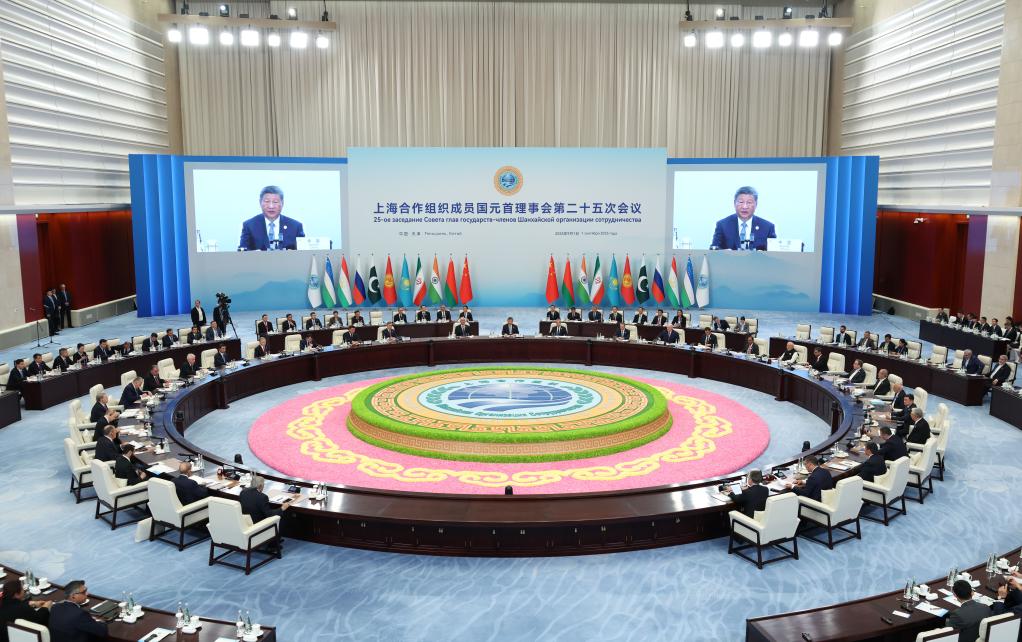Chinese President Xi Jinping has urged Shanghai Cooperation Organisation (SCO) member states to stay true to the bloc’s founding mission and take concrete steps toward shared development, as the organisation convened its largest-ever summit in Tianjin on Monday.
Addressing the 25th Meeting of the Council of Heads of State, Xi emphasized the need to uphold the “Shanghai Spirit” amid global uncertainty. He called on members to deepen solidarity, expand cooperation, and ensure the SCO continues to serve as a model of mutual trust, respect, and win-win partnership.
Founded in 2001 with six members, the SCO has grown into the world’s largest regional organisation, covering over 50 cooperation areas and representing nearly $30 trillion in combined economic output. Xi hailed its “groundbreaking and historic achievements,” from establishing a military confidence-building mechanism in border regions to spearheading Belt and Road cooperation and advocating inclusive global governance.
Xi urged the member states to leverage their vast markets and economic complementarities, enhance trade and investment facilitation, and accelerate collaboration in energy, infrastructure, green industries, digital economy, and artificial intelligence. He also proposed establishing an SCO development bank.
To bolster cooperation, China pledged 2 billion yuan ($281 million) in grants to other SCO members this year and an additional 10 billion yuan ($1.4 billion) in loans over the next three years. Beijing will also implement 100 “small and beautiful” livelihood projects, set up 10 Luban Workshops, and offer 10,000 training opportunities within five years.
China’s investment stock in other SCO states has already surpassed $84 billion, while annual bilateral trade exceeds $500 billion. “China always aligns its development with that of the SCO and with the aspiration of the people of member states for a better life,” Xi said.
The summit adopted key documents, including the Tianjin Declaration and a 2026–2035 development strategy, while inaugurating four new centers to tackle security threats, cyber risks, transnational crime, and drug trafficking. Leaders also welcomed Laos as a dialogue partner and confirmed Kyrgyzstan will assume the rotating presidency in 2025.

